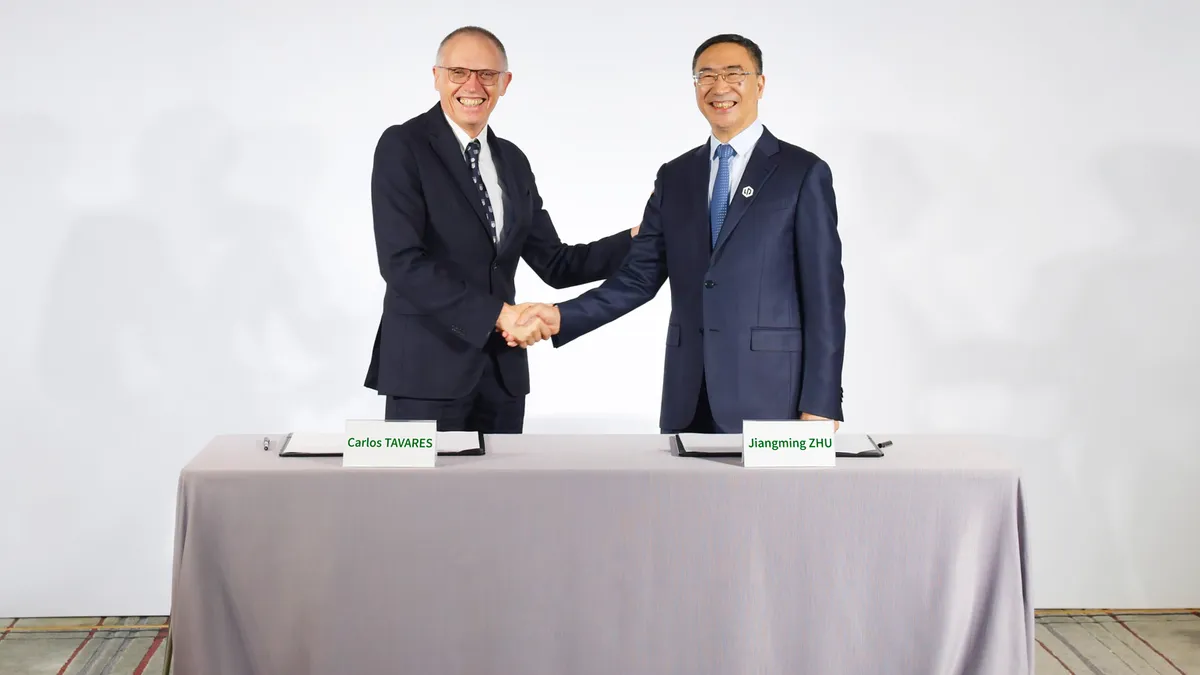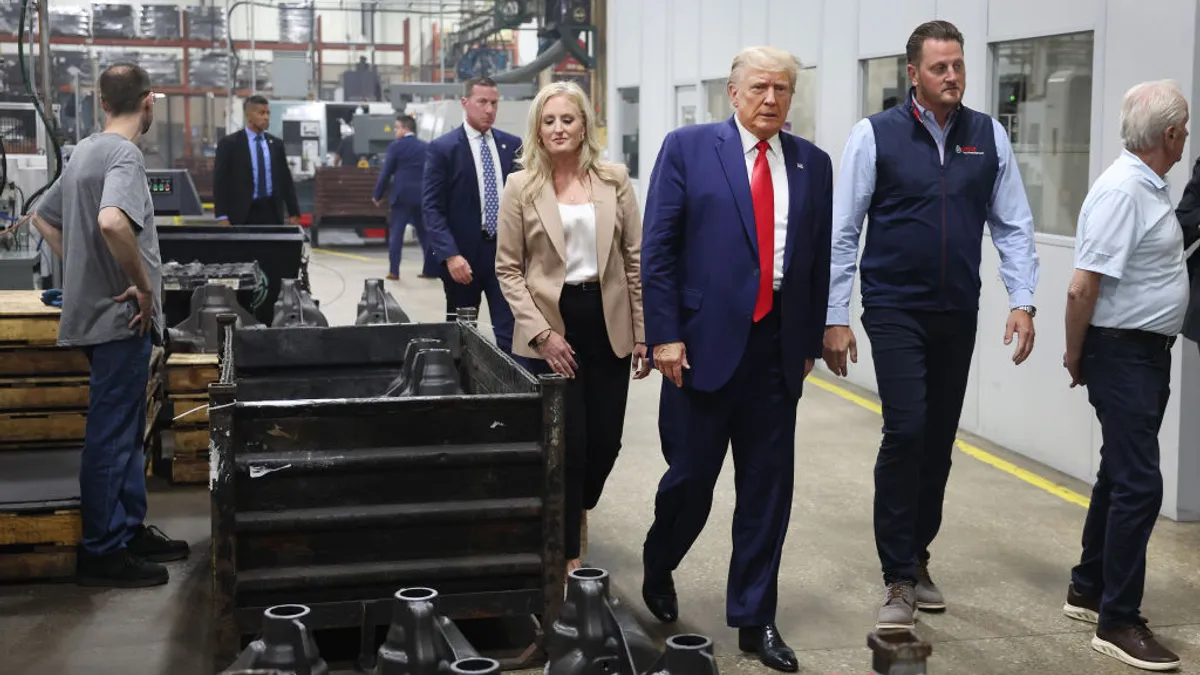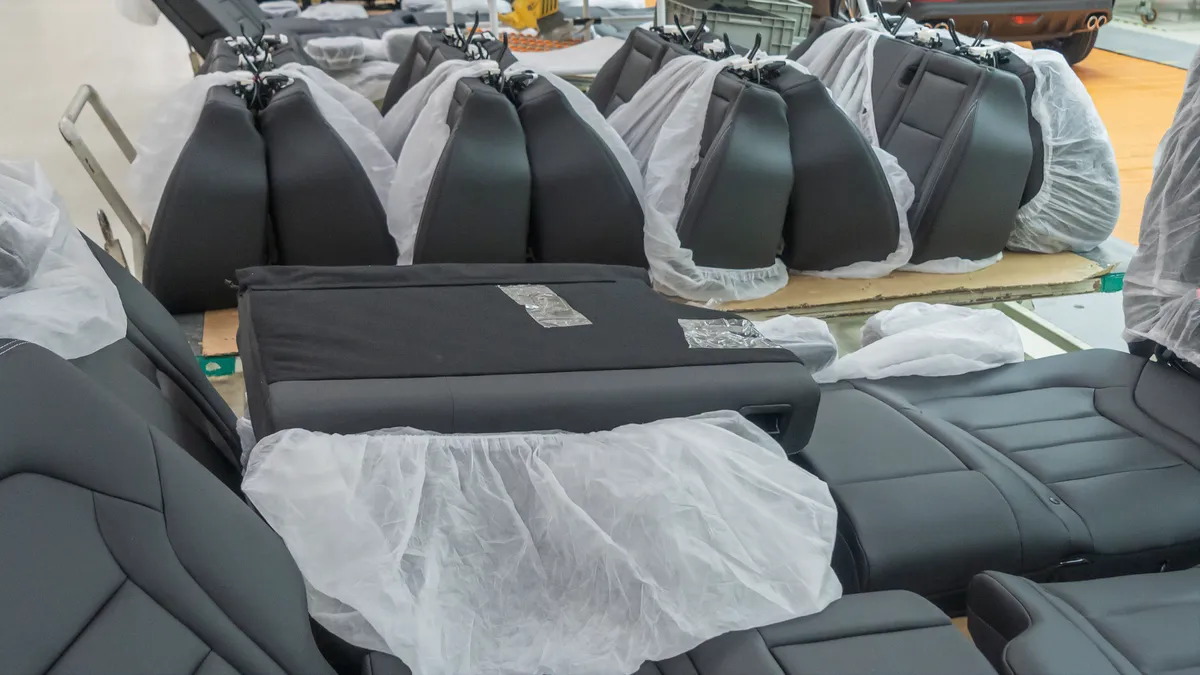Dive Brief:
- Stellantis acquired a 20% stake in China-based electric automaker Leapmotor as part of a $1.6 billion (1.5 billion euros) investment, Stellantis said Thursday.
- The automakers plan to establish a new joint venture, Leapmotor International, to build and sell Leapmotor cars outside China.
- The investment also gives Stellantis a stake in the world’s largest EV and hybrid market, which nearly doubled in size last year to 5.7 million vehicles.
Dive Insight:
Like many automakers, Stellantis is electrifying its vehicles as government mandates mount and EV subsidies roll out. The automaker is investing more than $52.9 billion in electrification over the next decade, aiming for battery-electric vehicles to be 100% of its passenger car sales in Europe and 50% of its passenger car and light-duty truck sales in the U.S. by 2030.
The Leapmotor investment comes after Stellantis and China’s Guangzhou Automobile Group shuttered their money-losing joint venture, which built and sold Stellantis’ Jeep brand vehicles in China, in July 2022. Last week, Bloomberg reported that Stellantis will sell its remaining automotive assets in China to Dongfeng Motor Group Co. in a deal that would net the company $234 million.
But Stellantis still wants a foothold in China’s car market.
“As consolidation unfolds among the capable electric vehicles start-ups in China, it becomes increasingly apparent that a handful of efficient and agile new generation EV players, like Leapmotor, will come to dominate the mainstream segments in China,” Stellantis CEO Carlos Tavares said in a statement.
Stellantis will have exclusive rights for manufacturing, exporting and selling Leapmotor’s EVs outside of China. Stellantis said it will own 51% of the joint venture, while Leapmotor will own the remaining 49%. Stellantis will also gain two seats on Leapmotor’s board of directors and select a CEO to lead Leapmotor International.
Leapmotor was established in 2015 to build plug-in hybrids, BEVs and fuel cell vehicles in anticipation of China’s 2018 New Energy Vehicle mandate, which is similar to California’s Zero Emission Vehicle requirement, according to the International Council on Clean Transportation.
The China-based automaker is targeting the mid-to-high end vehicle segment, which is the largest and fastest-growing vehicle segment in China, the press release says.
Leapmotor sold around 111,000 NEVs in China last year.
The EV startup also developed a proprietary electric drive system for its vehicles and designed its own battery packs. Its EVs feature integrated electronic and electrical architecture and autonomous driving capabilities.
In August, Leapmotor unveiled a new in-house designed EV platform that CEO Zhu Jiangming said it wants to license to other automakers, Reuters reported. Those technologies may benefit Stellantis, which lags other global automakers in autonomous driving technology and EV development.














